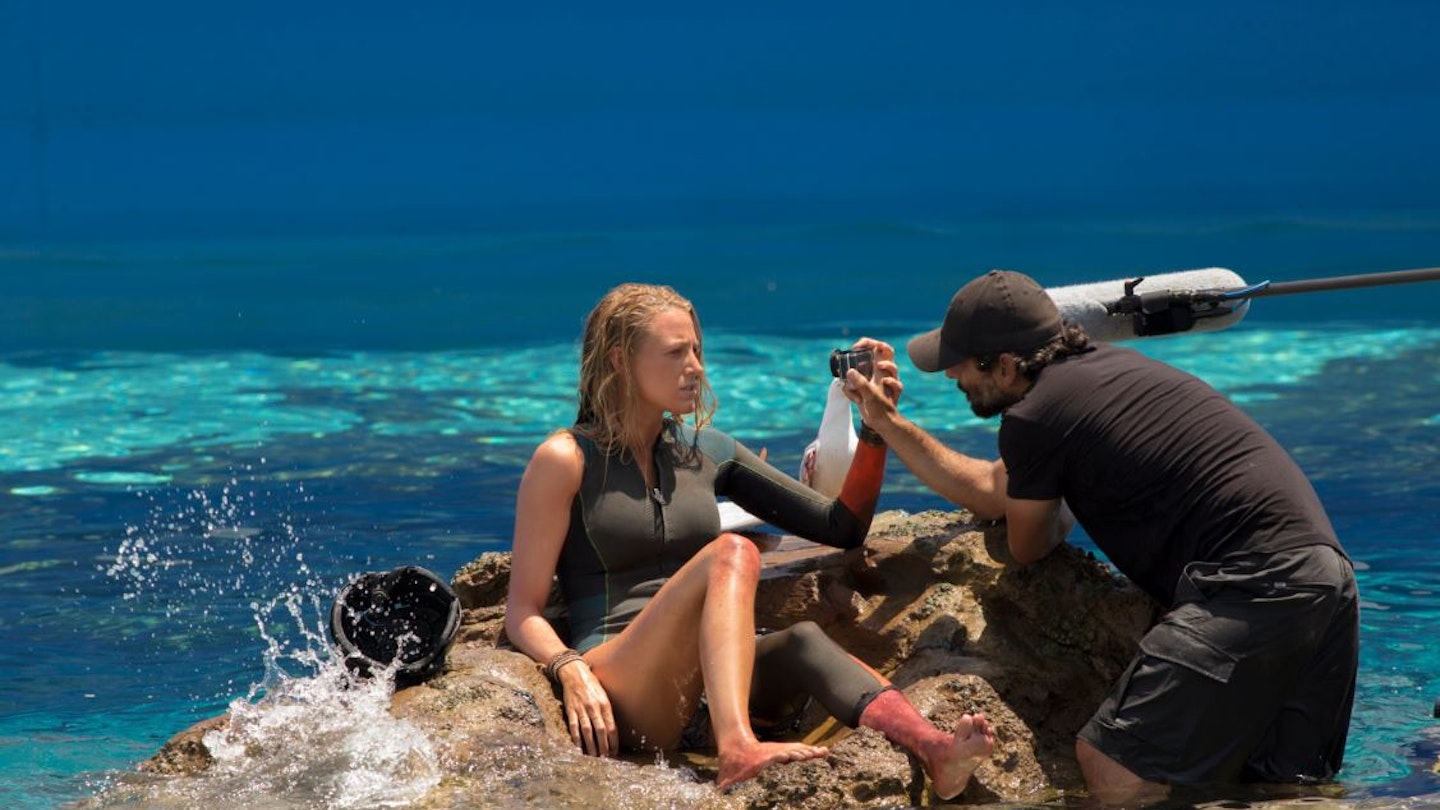Whether you're on Amity Island or a remote Australian beach, the message remains the same: stay the hell out of the water!
Jaume Collet-Serra's The Shallows is pretty much a one-woman, one-shark show with Blake Lively assuming the role of the former and CGI the latter. Lively is pro-surfer, pre-med student Nancy Adams who is looking for new purpose in life following the death of her mother. Encouraged via Facetime by her father to pick up the pieces and "survive," she finds she has to do exactly that when she's trapped on a large rock 200 yards from shore of said Australian beach and figuring out a way around an unrelenting great white shark.
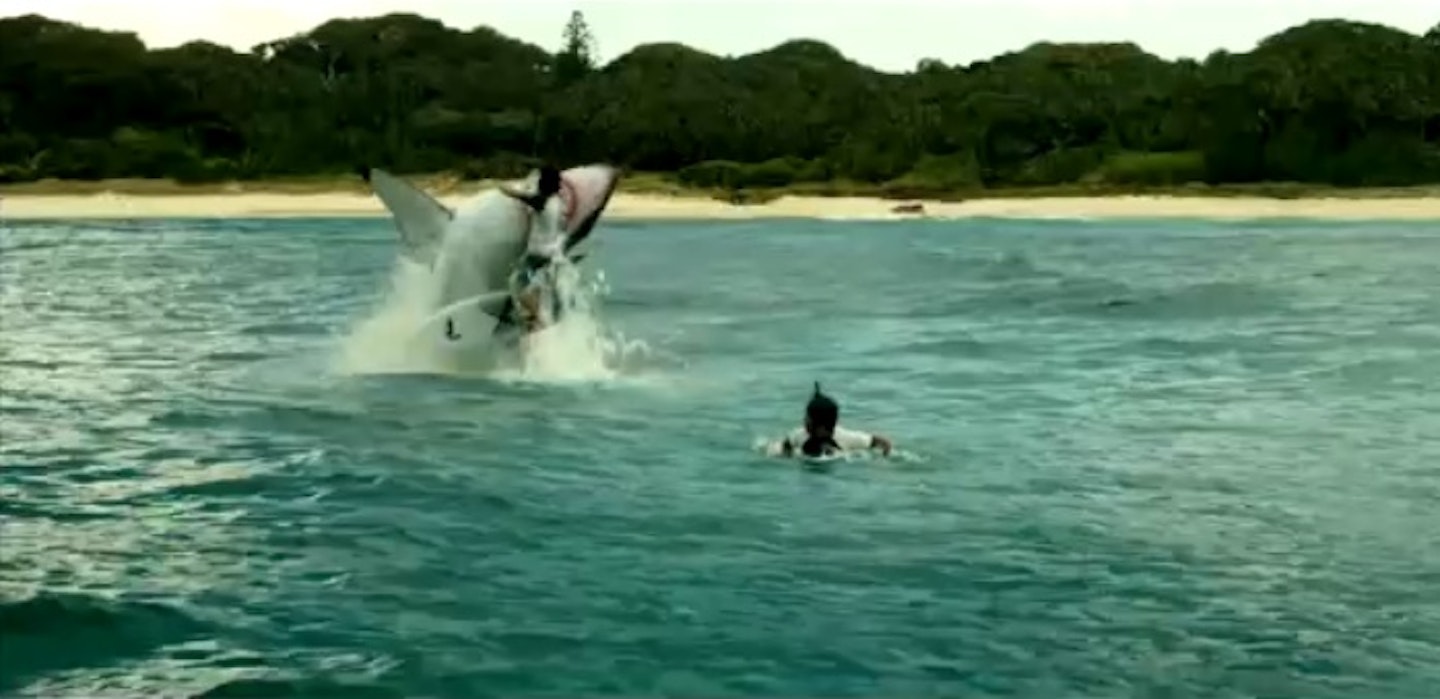
Sitting down with Empire, Collet-Serra (Non-Stop, Run All Night) reflects on the challenges, the joys and the scars (some virtual) of directing The Shallows.
When you approach a film involving a shark, how much of a shadow does Jaws cast on it?
I think that Jaws had no influence on me whatsoever in picking a movie like this. I never thought, "Oh, I'm going to be compared to Jaws or this movie." I think it's a completely different movie. It's like at two ends of the spectrum. This is more of a survival movie. Very simple, very economical. One character. You barely see the shark. Obviously, devices like not seeing the shark for a while they had to do in Jaws, because their mechanical shark broke down. I had to because I couldn't afford it. It's just a device from filmmakers that we've been using forever and it has nothing to do with one owning that device or not. We are all trying to make a movie that is compelling within our box that we are given, the budget and time wise. We use the tools that are currently in the time.
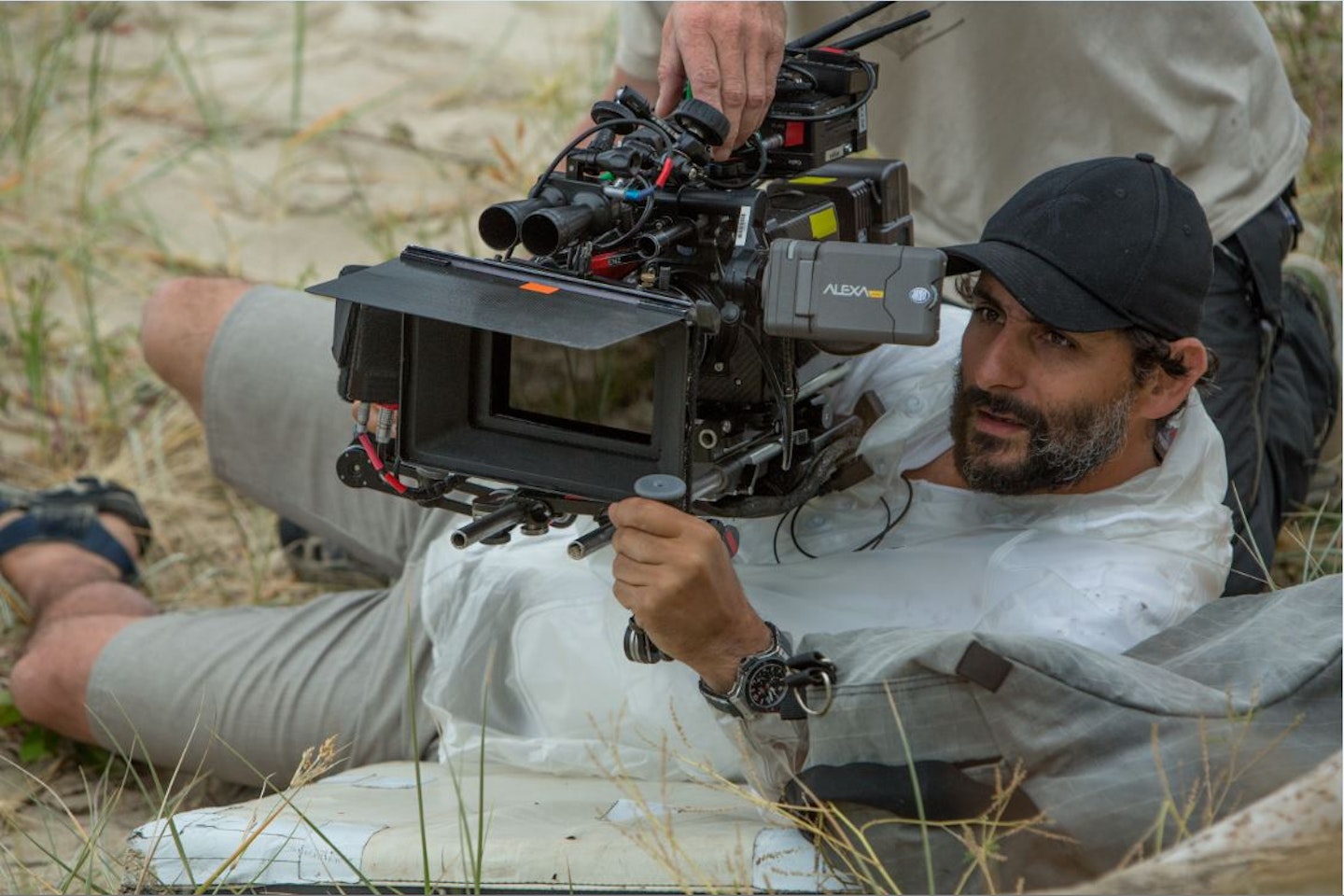
Five years ago I wouldn't have made this, because I wasn't convinced that CG could potentially execute this movie. Today I felt more comfortable. I was still nervous three weeks ago when I had half the shark shots left to see. I would have never done a shark movie with a mechanical shark, because of what they went through. At the same time, making a movie with a shark that's not mechanical but is CG... actually, that is very painful as well. You spend the money somewhere else, you spend it on the CG part of it, but it's very difficult. There's always going to be movies about sharks. There's always going to be movies about dinosaurs and giant lizards.
What would you say drew you to this project?
Jaws.... No, I'm kidding.
Good answer.
I wanted to make a summer movie. I have been doing thrillers that have been sort of complex and dark and light, mostly, and I just wanted a change of pace. It's almost like every time I've done a movie recently, it's always in the winter and in the snow. I've always said, "I hope my next movie can be in a tropical beach." Finally I found the movie that was in a tropical beach.
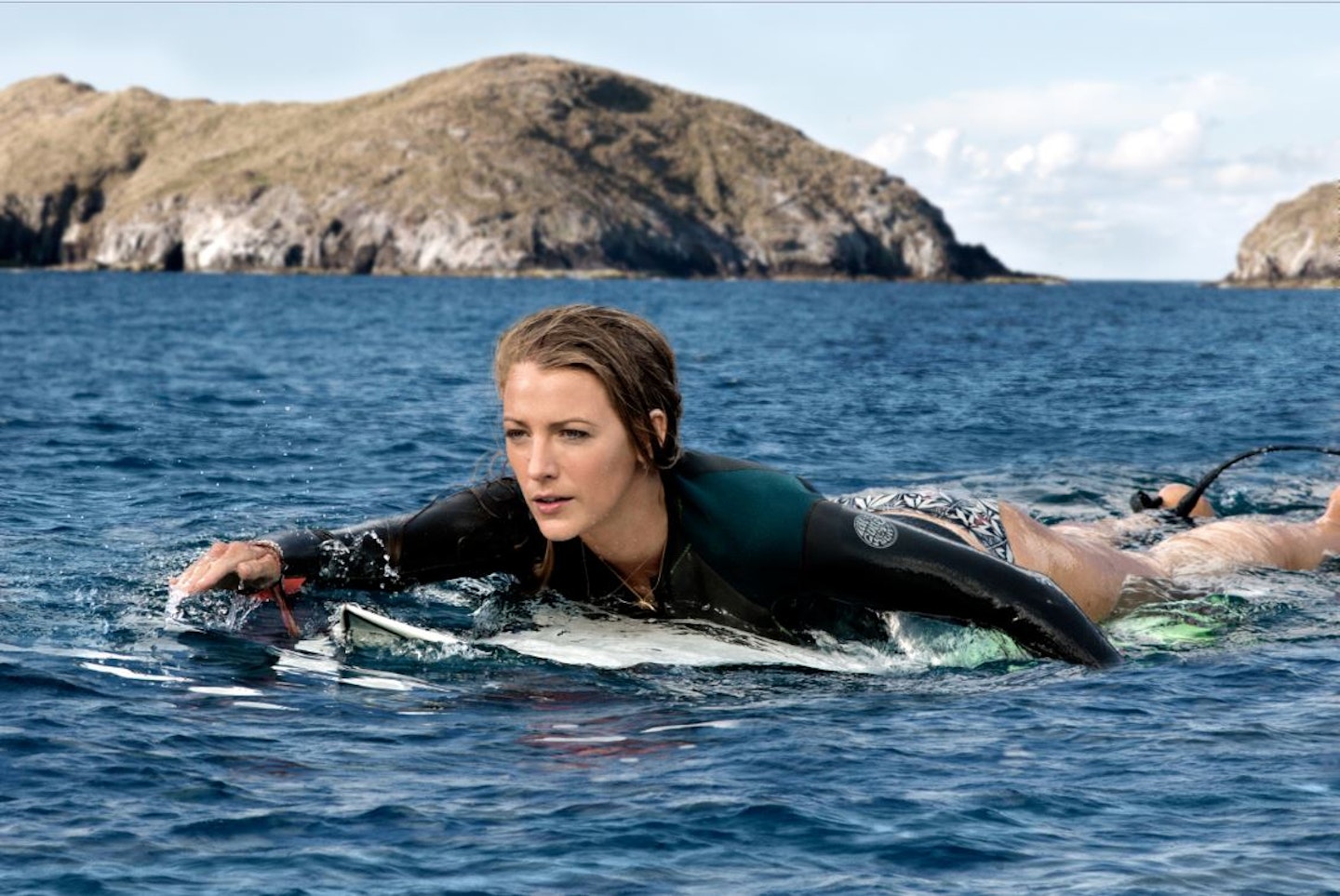
And it seems the studio was happy to give you your beach.
The studio was very keen on me doing it and doing it fast. They wanted to release it by this summer. Usually movies take two years, but this one took one year. If I can do a movie in a year, that's a year that I gain in my life. Most importantly, I was really scared of the challenge. I think that making a movie in the water, I knew was going to be difficult. I wanted to try that. I wanted to make a movie with visual effects. Creating a CG character is something that was very interesting, even though it had to look real and behave real, which is the ultimate test. Working with somebody like Blake, such a smart, tough person, really elevated the movie and that was a wonderful relationship.
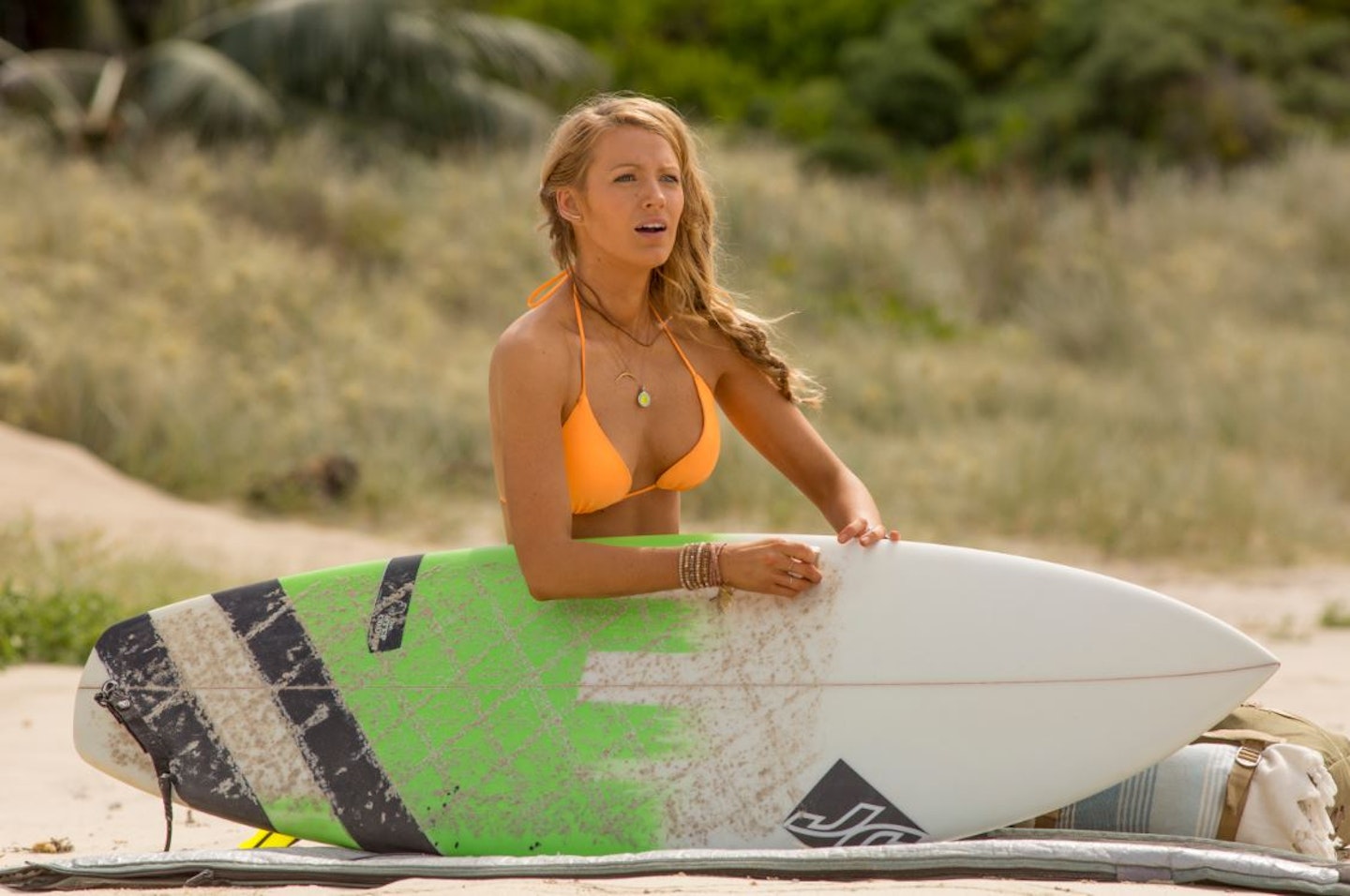
How challenging is it to sustain a film like this when you've really only got one point of view... two if you count the shark?
For me it's not hard. That's what I do. That's what I like to do. I would like to think that I could do that endlessly in a sense that it's a game that you play with the audience. You just play a game of expectation, letting them think one thing. The audience, people, forget that movie watching is an interactive experience. You don't open your eyes and then just die. You think. You expect. You feel things. If you know what areas to target, anything can be exciting. Absolutely anything. You can have profound experiences without having a lot of tools. That's what I try to do. I think trying to do things that are minimal, movies that are minimal, is a good exercise of trying things and finding out things that don't even apply to very complex subjects. There have been beautiful movies, perfect movies, that are very minimal as far as very complex things, and very complex movies that mean nothing. It's all a way to keep going and learning and doing good work.
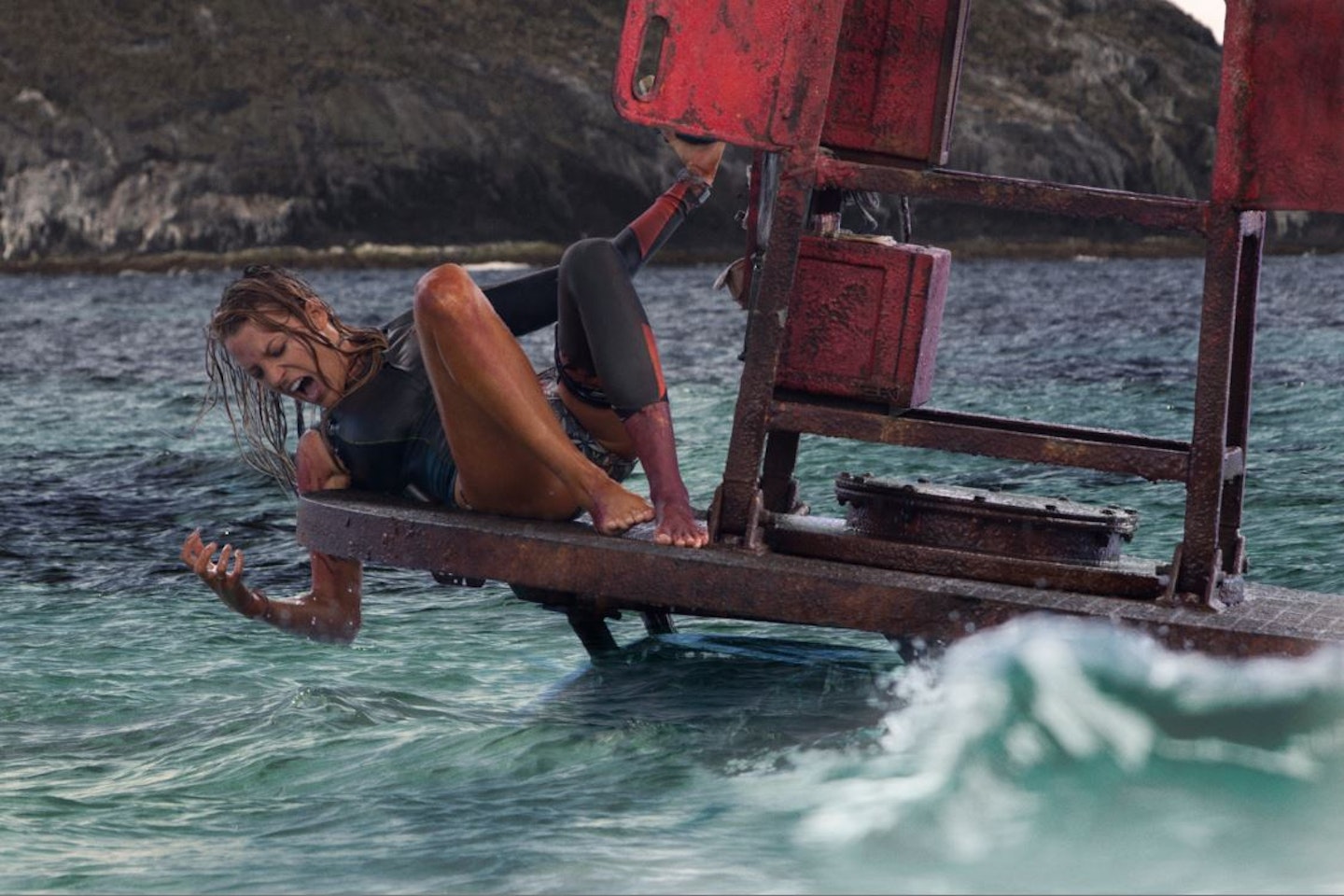
When you're a director working with primarily one actress, what does that do to the relationship in terms of the filmmaking?
There's always one main actor on a film. The big difference is that on most films there are things where the actor would tell you, for instance, "I wouldn't do that" and you're, like, "Well you actually need to do it, otherwise my movie falls apart, so let's try to hide it." We try not to do it, but those things always happen. When you are with one character, if my actor says, "I wouldn't do that," I have to change it. She needs to really believe it. Every choice is something that she needs to come from within. My goal is just to make everything feel as real as possible so that she gives me the right choices. Obviously there's not a lot of dialogue, because there's no one to talk to. What I'm trying to say is that the influence of that actor is much greater, not probably than the director, but than the script itself, and the movie itself. That's why Blake has been great. She has elevated the movie and brought so much to the movie in creating the character and the way that we get to know her. She was there by herself. There was nothing else. There was no shark. She's reacting to nothing. Everything is in her head. She's emoting and we believe it, and that's great.
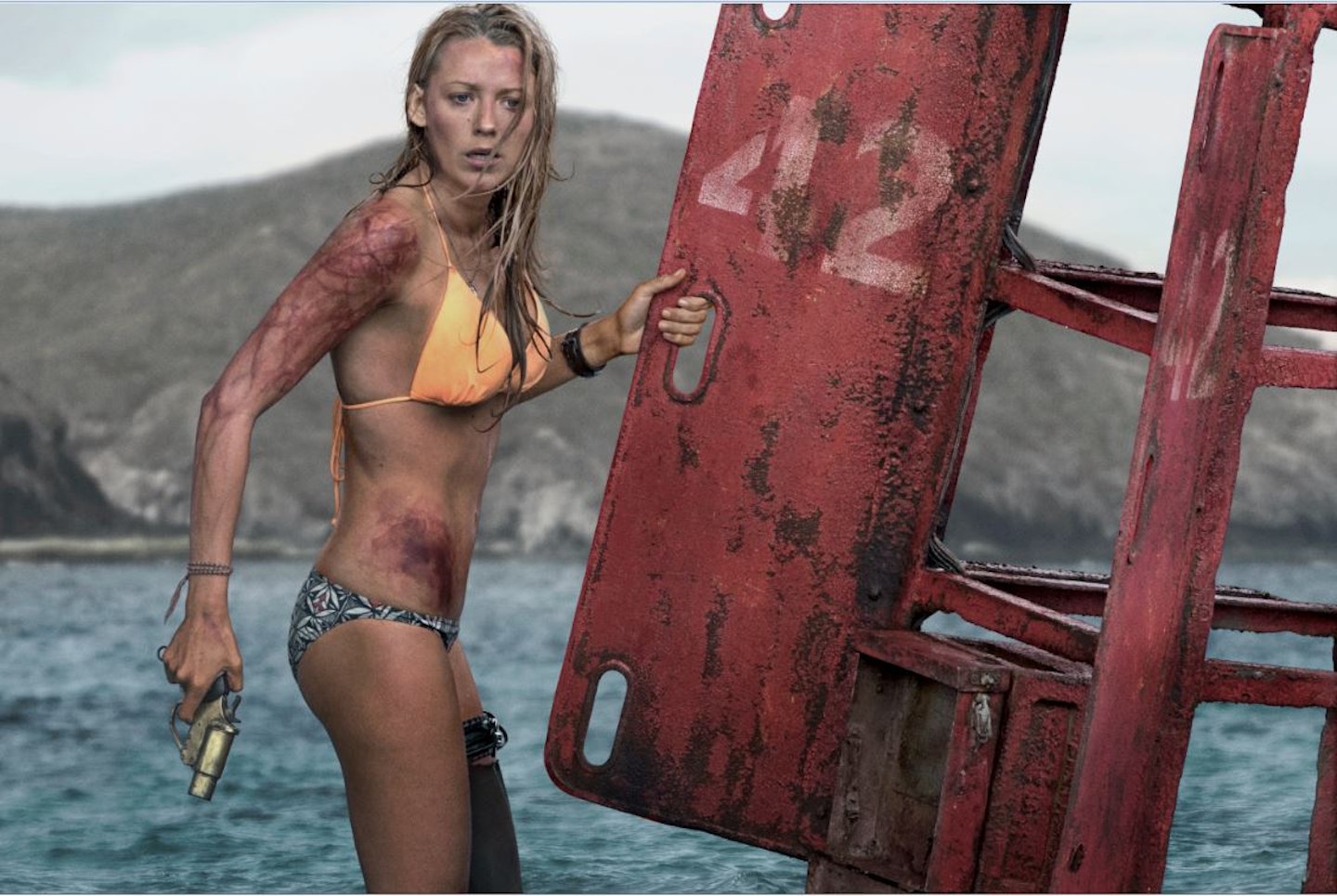
You touched on this a bit, but what do you feel Blake may have brought to the role that may not have originally been there in the script?
In the original script, the girl was much more simple. And purposely so. Any writer can basically foresee that an actor will come in and fill up the shoes, so you don't want to overwhelm it with back story. As an example, the original character was a younger girl that wanted to maybe be a nurse. Here we have Blake who is obviously a smart, capable, woman. She just quit medical school. Those are things that were not in the original. With Blake we made stronger choices and saying this is someone who knows what she wants, but she probably doesn't believe that she's capable or has lost faith on it, given certain circumstances of her mom's death, which really makes for a stronger arc.
When you meet Blake, you immediately get the sense that you have somebody that is very strong and very capable. You want to see that person grow throughout the film. You don't want to have that story happen to someone who is just a victim. You want this to happen to somebody that was looking for it. The shark didn't go to her house and knock on her door. She didn't invite it in. She was there on this beach alone. She was there after the other surfers left and went into the shark's territory. She was looking to be challenged as a character in the way that I think Blake was looking to be challenged in this movie. And I was looking to be challenged with this movie. The movie was our own little shark. We had to face those fears and come out of it alive, with a few scars.
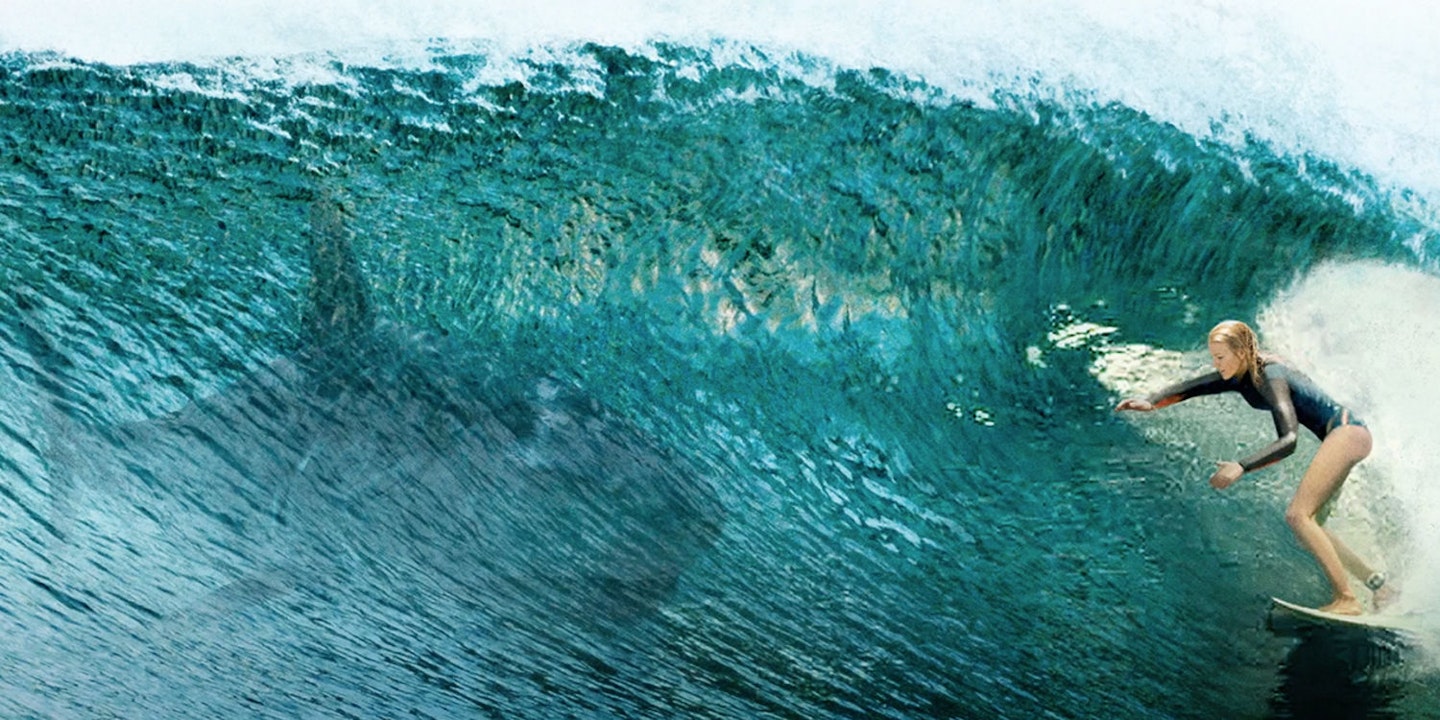
Was it difficult as director to deal with so prevalent a threat that was never actually there in the water in a physical form?
That's the case with every movie. Even with the most intimate fist fight, there is no actual punch. Everything is technical in the sense that we get the pieces to build the story. Eventually the movie doesn't take place on the screen, it takes place in the imagination of the people that are watching it. They are the ones that are reacting and feeling it. There's the principle that the actor is feeling it in the moment and is really emoting that, and the audience is going to get it as well. The rest is the different tricks that we can do. If you get a good actor, it makes it much easier. Obviously if you are shooting with children, they need to be tricked because they are not emotionally smart enough to pretend that something is real, you know? In this case, all of the weight goes to Blake when I tell her that the shark is coming, that she needs to react not to my voice but to that shark.
You'd mentioned that you come away from a movie like this with your own scars. What scars did you sustain?
A lot of them. It's a movie that I had planned extensively, but there were things I wasn't allowed to do because circumstances didn't let me. Like nature itself, which created a lot of issues for us technically. You kind of have to let go of something, like some of your vision, and find other ways to tell the story. For somebody that is very creative, and as a director and anal control freak like all directors are, it leaves a scar. It leaves a sense that you might have failed. In the end, you have to be proud that you gave it your best, and I think that that's also a learning experience.
